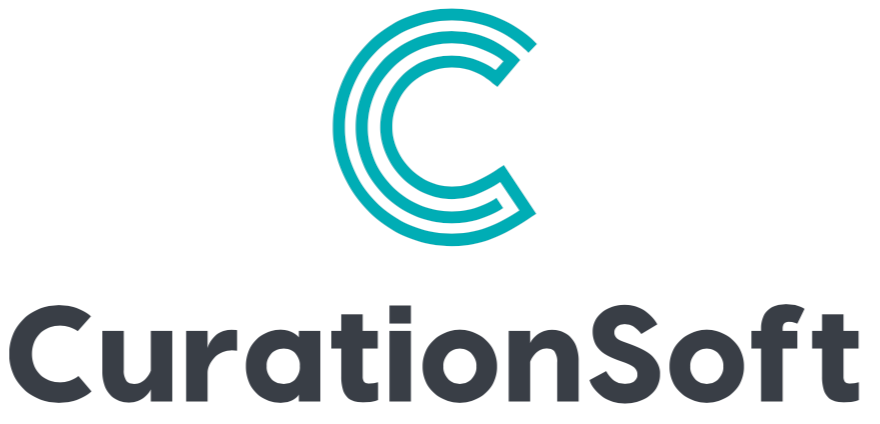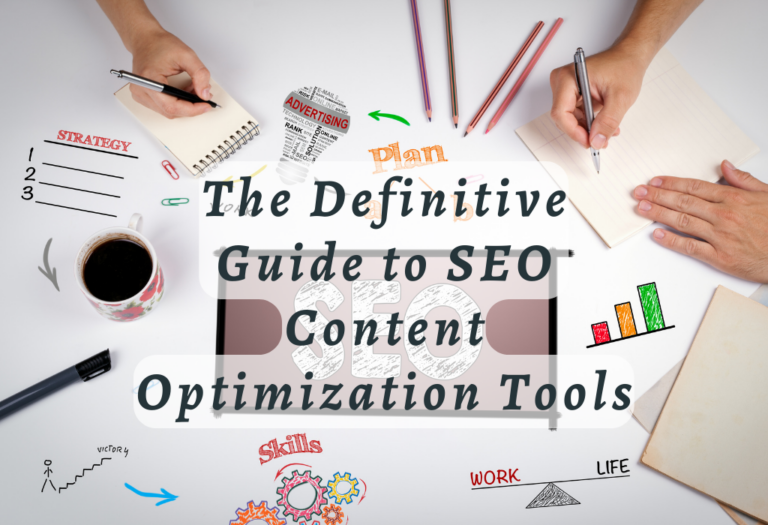Unlock Your SEO Potential with Advanced Keyword Research
Want to generate a boatload of traffic on your website but need to know how to kick start? It is the story of every online entrepreneur. According to a study, bloggers paying an attention to SEO earn more than 50k dollars per year. Advanced keyword research is an essential skill if you’re a marketer looking to get ahead of it. Identifying and selecting the right keywords can help your content reach its target audience more effectively.
This comprehensive guide covered everything from finding relevant keywords to utilizing popular tools available today. Moreover, you will also find a cheat code with advanced tips on how to use them to maximize results. With these insights into effective keyword research strategies, you’ll be able to optimize your SEO efforts with greater accuracy and efficiency than ever before!

What is Keyword?
Keywords are phrases people use when searching online, so it’s essential to target those terms to increase visibility and reach your desired audience.
What is Keyword Research?
Keyword research is discovering and analyzing words and phrases people use to search for content online. It’s an essential part of any successful digital marketing strategy, as it helps you identify the terms your target audience uses to find relevant information.
By understanding what keywords are used in searches, marketers can create content that resonates with their target audience and drives more organic traffic to their website. Keyword research also helps marketers optimize existing content for better visibility on search engine results pages (SERPs).
What are the Potential Benefits of Keyword Search?
The following benefits of the advanced keyword search will let you know how important it is to equip yourself with this marketing strategy:
- The primary benefit of keyword research is that it allows marketers to create content tailored specifically to their target audience’s interests and needs.
- By doing advanced keyword research, you will be able to generate highly targeted content which has a higher chance of ranking well on SERPs due to its relevance.
- It will help you get increased organic traffic from potential customers actively searching for what you have to offer.
- Additionally, keyword research can help improve existing web pages by optimizing them based on popular search terms related to the page’s subject matter.
What are the Main Types of Keywords?
There are four main types of keywords:
1. Short-tail keywords
These single words or short phrases generally have high search volumes and competition. Examples include “marketing,” “SEO,” and “content marketing.”
2. Long-tail keywords
These are longer phrases with lower search volumes but less competition than short-tail keywords. They can be more specific to a product or service and help drive qualified leads to your website. Examples include “how to find keywords for a blog” and “10 suitable practices for digital creators.”
3. Localized keywords
These target local audiences by including geographic locations in the keyword phrase such as city names, states, provinces, etc., e.g., “digital marketing agency in New York City.”
4. LSI (Latent Semantic Indexing) Keywords
These related terms appear alongside the primary keyword you’re targeting to provide additional context about the page. LSI keywords help Google better understand your page’s topic so it can rank it higher in searches for relevant queries. For example, include “social media campaigns” when targeting “content marketing.”
Key Takeaway: Keyword research is essential to any successful digital marketing strategy, as it helps you identify the terms your target audience uses to find relevant information. The key benefits of adopting this strategy include increasing organic traffic from potential customers actively searching for what you offer and Optimizing existing web pages based on popular search terms related to their subject matter.
How to Find Relevant Keywords?
Finding relevant keywords for content marketing and SEO campaigns is essential to any successful strategy. Here are some tips on searching for relevant keywords for your campaign.
1. Brainstorming Ideas for Keywords
The first step in finding relevant keywords is brainstorming ideas. Think about what topics you want to cover. Come up with a list of related words or phrases that could be used as search terms. Consider using tools like Google Trends or AnswerThePublic to get more ideas based on popular searches related to your topic.
2. Using Competitor Analysis to Identify Relevant Keywords
Analyzing competitors’ strategies can also help you identify which keywords they are targeting and how they are optimizing their content around them. Look at the titles, meta descriptions, and body copy of your competitor’s web pages. Find if there are any common themes or patterns among them that provide clues about the terms they may be targeting with their SEO efforts.
Google seeks to give users the best results for their searches. Google will likely allow your material to shine if you offer the most comprehensive and helpful response. But what does that entail? We divide it into these three steps:
1. Complete the blanks.
2. Concentrate on one thing at once.
3. Become more thorough with your material than your rivals.
3. Using Online Tools
Several online tools can help you find relevant keywords for your campaign, such as Google Ads (formerly AdWords) Toolbox, SEMrush, and Moz Pro. These tools allow you to enter a keyword phrase into a search box and generate lists of related terms. They will also provide information about each time, such as its search volume and competition level. Both are useful metrics when deciding which should be targeted in your campaign.
Key Takeaway: To find relevant keywords for content marketing and SEO campaigns, brainstorm ideas, analyze competitors’ strategies, and use keyword research tools like Google Ads Toolbox, SEMrush or Moz Pro.
How to Choose the Right Keywords?
It’s important to understand search intent and user intent, analyze search volume and competition level, and evaluate the quality of targeted keywords before launching an SEO campaign.
1. Understanding Search Intent and User Intent
To choose the right keywords, you must understand what users look for when they enter a query into a search engine. It means understanding both their “search intent” (what they want from the results) as well as their “user intent” (what action they want to take) is significant.
For example, if someone searches for “best restaurants in Seattle,” their search intent is likely to find more information about local eateries. Moreover, their user intent could be booking a table at one of them.
2. Analyzing Search Volume and Competition Level
Once you have identified relevant keywords that match your target audience’s needs, it’s time to analyze how much interest there is in those terms. You can check its monthly search volume on tools like Google Ads or SEMrush. You should also check how competitive these terms are by seeing who else ranks for them. It will give you an idea of whether it would be worth targeting them.
Finally, it’s essential to assess whether your chosen keyword phrases are high-quality ones. They must bring in organic traffic over time rather than just short-term gains from paid ads campaigns alone. You must evaluate the following factors for ranking your blog:
- Relevancy (are people searching for these terms?)
- Potential reach (how many people might see your content?)
- Conversion rate potential (will visitors take action once they arrive?).
Doing this will ensure that the keywords you choose are high quality and will help drive long-term success for your content marketing and SEO campaigns.
Key Takeaway: Key takeaway: Keyword research is essential for successful content marketing and SEO campaigns. Evaluate search intent, volume, competition level, and quality of targeted keywords to ensure long-term success.
What are some Popular Keyword Research Tools?
Here we have enlisted the top contenders of the popular keyword research tools list. You can use any of these for ranking your blog and generating traffic:
1. Google Ads Toolbox
Google Ads (formerly AdWords) Toolbox is a powerful keyword research tool that allows marketers to identify relevant keywords and track their performance. It provides detailed data on search volume, competition level, and estimated cost-per-click for each keyword. It makes it easy to find the most profitable keywords for your campaigns. Additionally, Google Ads Toolbox analyzes competitors’ ad copy and landing pages to gain insights into what works best for them.
2. SEMrush
It is another popular keyword research tool that helps marketers uncover high-value keywords with low competition levels. With SEMrush, you can easily monitor rankings of targeted terms across different search engines such as Google and Bing. You can also use this tool to measure organic traffic from organic searches and assess conversion rates from paid ads campaigns. Moreover, SEMrush provides valuable insights into competitors’ SEO strategies so you can stay ahead of the game when optimizing content based on your target keywords.
3. Moz Pro
It is an all-in-one SEO suite with a comprehensive set of tools designed specifically for keyword research. With Moz Pro, you have access to an extensive database of over 200 million unique keywords organized by topic or industry category, so you can quickly find the right ones for your campaign goals. Additionally, Moz Pro enables users to compare their website’s performance against competitors’ websites to identify opportunities for improvement in their SEO efforts.
Key Takeaways: Semrush, Moz Pro and Google Ads Toolbox are the key tools for keyword research.
Advanced Tips for Effective Keyword Research
Keyword research is essential to any successful content marketing and SEO strategy. You know how to research keywords effectively can help you identify the best terms to target for maximum visibility and reach your desired audience. Here are some advanced tips for effective keyword research to help you get the most out of your efforts.
1. Leveraging Long Tail and LSI Keywords
Long tail keywords are longer, more specific phrases than standard search terms, often containing three or more words. These keywords tend to have lower competition levels and higher conversion rates since they’re so targeted.
Leveraging long-tail keywords in your campaigns can be a great way to drive qualified traffic with less effort than targeting broader terms. Additionally, leveraging Latent Semantic Indexing (LSI) related terms can be beneficial. It helps Google better understand the context behind your writing on a page or post.
2. Utilizing Negative Matching in Your Campaigns
Negative matching allows you to exclude specific search queries from appearing in your ad campaigns by adding them as negative keywords within AdWords or other platforms like Bing Ads Manager. It is beneficial if there are specific searches that don’t align with what you’re trying to promote or sell through ads, such as competitors’ products or services that need to be more relevant to yours. By using negative matching, you can ensure those irrelevant searches won’t appear when someone enters one of your targeted keyword phrases into a search engine query box.
3. Figuring out all possible keyword variations
Once you’ve identified potential keyword opportunities through brainstorming ideas and competitor analysis, creating an organized list of all possible variations is essential. Do this each term so that everything gets noticed during the implementation stages later.
For example, if one of your main topics is “content marketing,” then make sure all related variations, such as “inbound marketing” and “digital content creation,” are included in this comprehensive list too. Doing this will ensure no stone goes unturned when optimizing pages around these topics later down the road.
Key Takeaway: Leverage long tail and LSI keywords, utilize negative matching, and create a comprehensive list of keyword variations for maximum SEO success.
How to Measure the Performance of Your Targeted Keywords?
Measuring the performance of your targeted keywords is essential for any successful content marketing and SEO strategy. Knowing how to track rankings, analyze traffic from organic searches, and assess conversion rates from paid ads can help you identify which keywords are working for you and which ones need improvement.
1. Tracking Rankings with SEO Tools
Tracking keyword rankings with a reliable SEO tool is the best way to measure the success of your targeted keywords. By monitoring changes in search engine results pages (SERPs), you can get an accurate picture of how well each keyword performs over time. It will allow you to adjust your strategies accordingly to drive more traffic to your website or blog effectively.
2. Analyzing Traffic from Organic Searches
Analyzing the amount of organic traffic from specific keywords can also provide valuable insights into their effectiveness. By looking at data such as page views, bounce rate, average session duration, and other metrics related to user engagement, you’ll be able to determine whether specific terms resonate with visitors. This information helps refine existing campaigns or create new ones based on what works best for your audience.
3. Assessing Conversion Rates from Paid Ads
Finally, assessing conversion rates associated with different types of ads is another great way to measure the performance of targeted keywords. For example, if a particular ad campaign needs to yield more leads or sales compared to its cost per click (CPC), it may be time to switch up some elements, like targeting options or creative assets, to optimize conversions further down the line.
Overall, measuring the performance of targeted keywords requires careful analysis across multiple channels, including SERPs tracking tools and analytics platforms like Google Analytics or Adobe Analytics, to gain meaningful insights about their effectiveness over time. It allows marketers to make informed decisions when optimizing content for maximum visibility online.
Key Takeaway: A successful content marketing and SEO strategy require tracking keyword rankings, analyzing organic traffic, and assessing paid ads’ conversion rates to identify which keywords are working.
How do you optimize Your Content Based on Your Targeted Keywords?
Optimizing your content with the help of targeted keywords is not a hard nut to crack. Here are some practical tips for you:
1. Crafting Engaging Titles and Meta Descriptions
Crafting an engaging title and meta description is essential for optimizing content based on targeted keywords. Your titles should be catchy yet accurately reflect the topic of your post. They also include relevant keywords. Similarly, your meta descriptions should provide a brief overview of what readers can expect from the article while enclosing relevant keywords. Both titles and meta descriptions must be in a way that entices readers to click through to read more.
2. Writing Compelling Copy That Matches User Intent
When optimizing content based on targeted keywords, writing compelling copy that matches user intent is critical. Understanding what users search for when they type in specific queries is essential so you can craft copy that speaks directly to their needs or interests. Additionally, ensure you include relevant keyword phrases throughout your post naturally without overstuffing them, as this could negatively impact SEO performance.
3. Structuring content
Structuring your blog post helps ensure maximum visibility with search engines like Google. It will help optimize your content based on targeted keywords. It includes:
- Using headings (H1-H6) appropriately
- Breaking up text into shorter paragraphs
- Utilizing bullet points where appropriate
- Adding images or videos, if possible
- Ensuring all links are working correctly within the post itself.
- Adding external links included in the piece.
Key Takeaways: Optimizing your content with relevant keywords is a piece of cake by crafting engaging titles and meta descriptions, writing compelling sales copy and structuring your content correctly.
Conclusion
In conclusion, advanced keyword research is essential to any successful content marketing and SEO strategy. You can optimize your content based on targeted keywords and measure their performance by understanding how to find relevant keywords and incorporating them naturally in your blog post. With a little effort and dedication, you’ll get better search engine rankings for your website or blog in no time!
Looking for a way to optimize your content marketing and SEO? Look no further than curationsoft! Our advanced keyword research tools help you find the most relevant, profitable keywords usable in your content strategy. With our powerful analytics suite, you’ll have access to valuable insights into what’s driving traffic and engagement on your web pages. This way, you can make informed decisions about how best to reach new audiences and drive conversions. Try it out today!






